Overbite Before and After Braces: Transformative Results!
Contents
- Why Overbite Needs to Be Fixed?
- What to Know about Overbite Before and After Braces?
- Can Braces Fix an Overbite Teeth?
- Overbite Before and After Braces Images
- Noticing Mild Overbite Before and After Braces
- How Long Do Braces Take for Overbite?
- Can Overbite Come Back after Braces?
- How Much Do Overbite Braces Cost?
- Takeaway
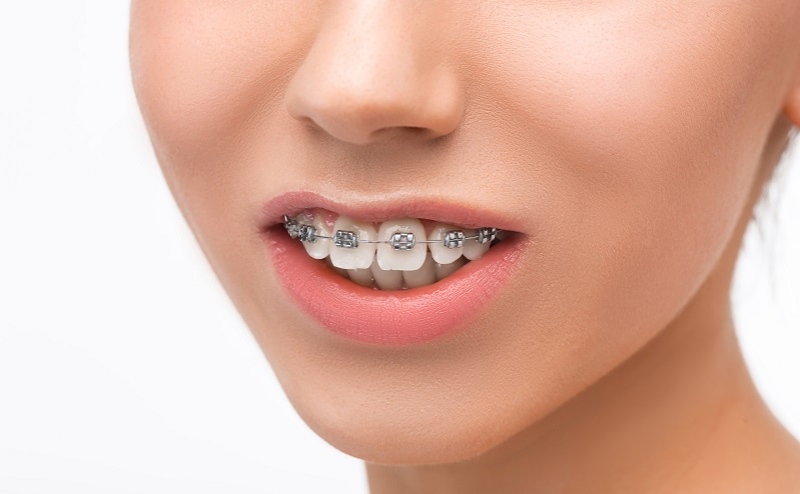
Your dentist may have advised you to visit an orthodontist if you have an overjet or overbite.
Although having a minor overbite after getting your braces off or having one come back a few years later is not typical, it is also not unheard of.
You can decide to ignore the overbite and maintain it, or you can decide to have braces again and fix the overbite, depending on how much of an overbite remains after braces.
Let us know more about overbite now in this blog.
Why Does Overbite Need to Be Fixed?
Misaligned teeth and jaws can cause you to compensate excessively when chewing and speaking, which can eventually result in face pain.
A significant overbite may result in pain while biting or chewing, migraines, and even jaw joint issues like temporomandibular joint dysfunction (TMJ).
Your oral health can be jeopardized by overbites, yet orthodontic treatment can make your smile beautiful. Last but not least, an overbite can alter the way your mouth looks and how you look from the side.
Even a minor overbite might make you feel self-conscious, but larger overbites can significantly alter how your face looks and how confident you feel.
What to Know about Overbite Before and After Braces?
1. Types of Overbites
Vertical Overbite: When the top teeth overlap the bottom teeth.
Horizontal Overbite: When the upper front teeth protrude over the lower teeth.
It's possible to have both vertical and horizontal overbites simultaneously. Overbites can also occur if some bottom jaw teeth are missing and the remaining teeth shift backwards.
2. Causes of Overbites
Skeletal Overbite: Due to an oversized upper jaw or an undersized lower jaw, causing misalignment.
Dental Overbite: Resulting from the position of the teeth alone.
Treatment Differences Treatments vary significantly between skeletal and dental overbites. While a slight overbite is normal (typically 1-2 mm), achieving perfect alignment may sometimes require more than braces.
Post-Braces Reality After braces, a minor overbite may remain. Although advancements in orthodontic technology reduce the need for surgery, some cases still require it. The recovery from jaw surgery can take a few weeks, during which the jaw heals before braces can be worn again.
Understanding these aspects can help set realistic expectations for overbite correction and the treatment journey.
Can Braces Fix an Overbite Teeth?
Most overbite issues can be resolved with braces. During the assessment phase, X-rays are used to determine the type of overbite and the position of the teeth and jaw. After that, both the upper and lower dental arches are fitted with braces.
The archwire first straightens and aligns the teeth. In the second stage of braces, elastics (small rubber bands) may be used to progressively realign the jawline.
The bands are fastened to the brackets from the front to the back or top to bottom to help move the teeth and jaw. The bands are taken off and put back on before eating, drinking, and brushing their teeth. In order to exert consistent pressure, the bands must be worn all the time.
The teeth and jaw may hurt more frequently if they are worn and taken off frequently. The last stage of treatment involves wearing a retainer or utilizing a permanent wire to maintain the teeth in the proper alignment.
Overbite Before and After Braces Images
Patient 1:
Overbite with Front Teeth Gap, Treated with Dezy Aligners
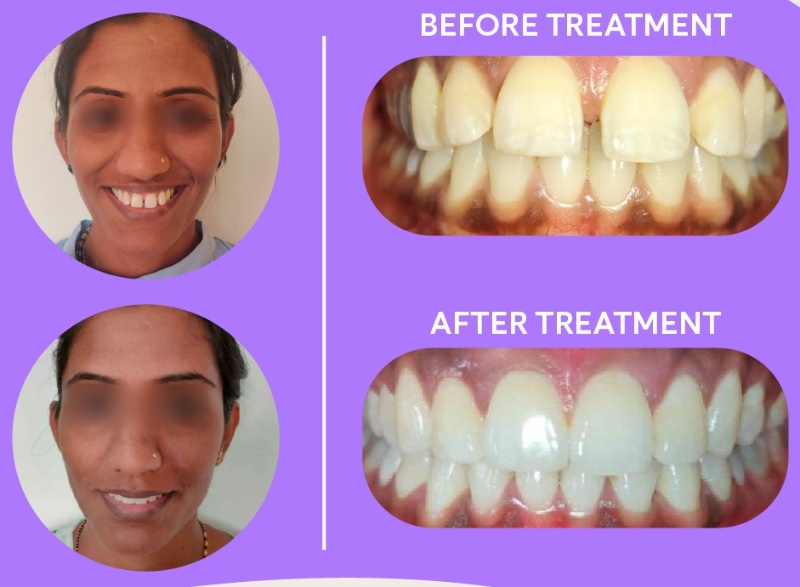
Patient 2:
Overbite with Crowded Teeth, Treated with Dezy Aligners
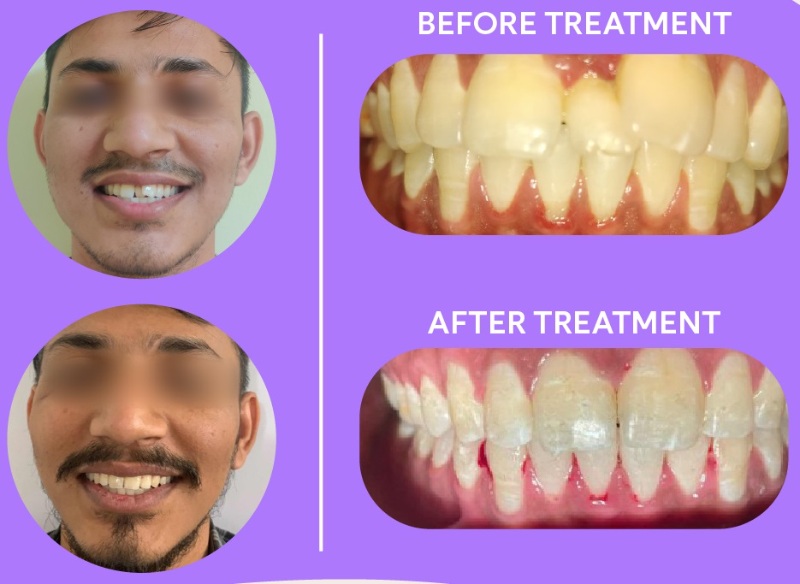
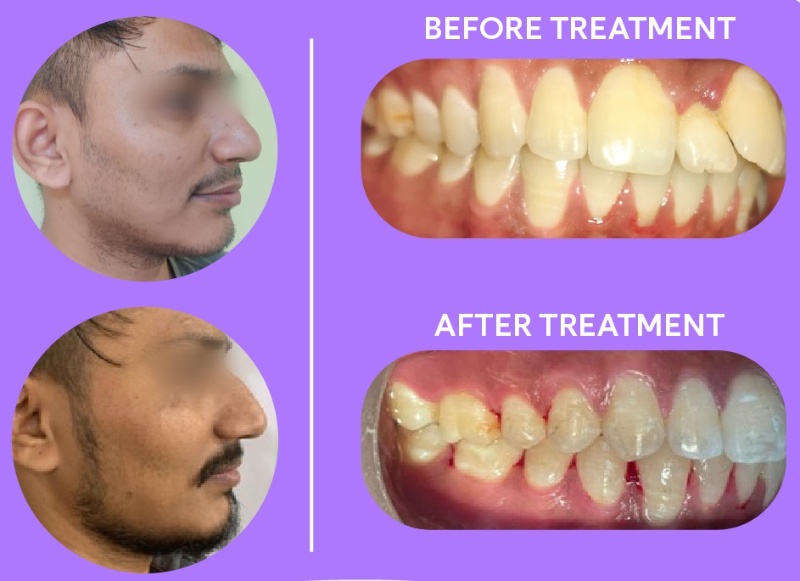
Patient 3:
Overbite with big front teeth gap, Treated with Dezy Aligners
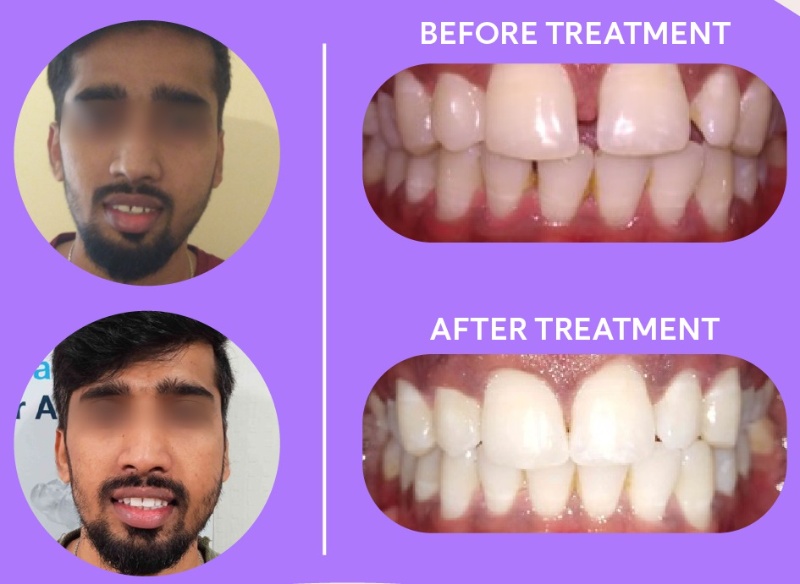
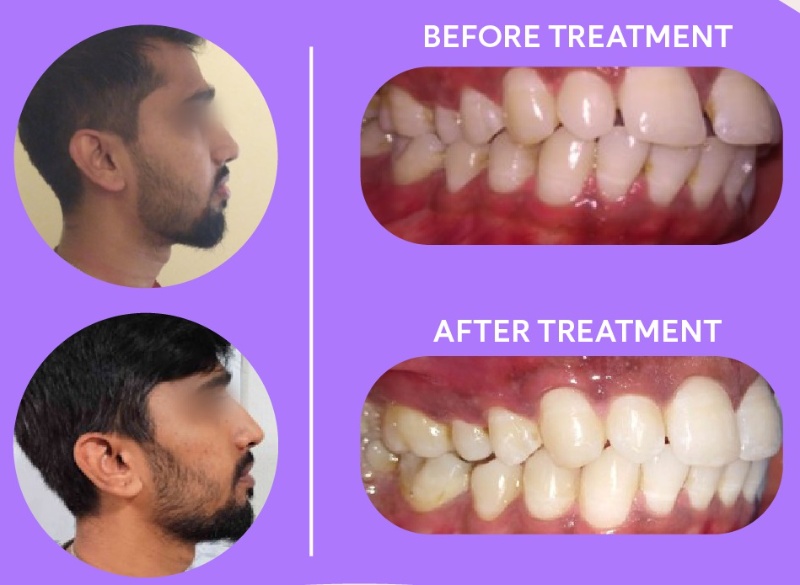
Patient 4:
Overbite with large front teeth gap, Treated with Dezy Aligners
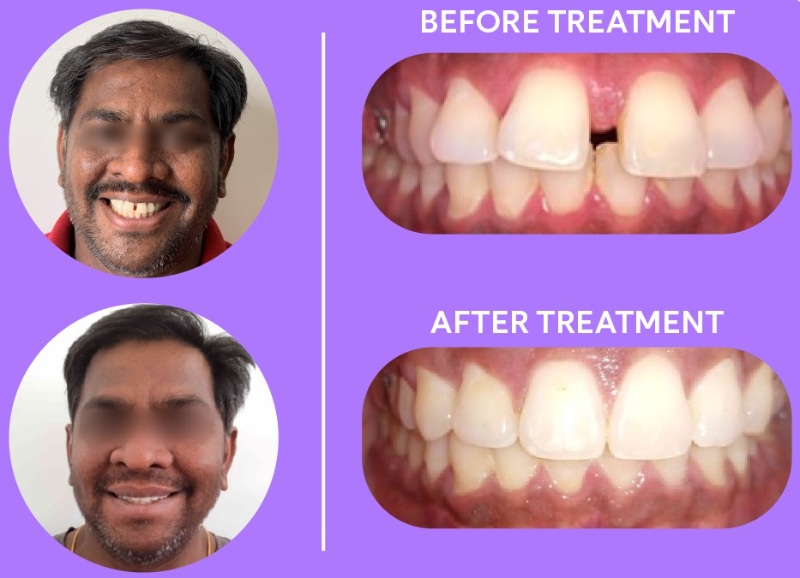
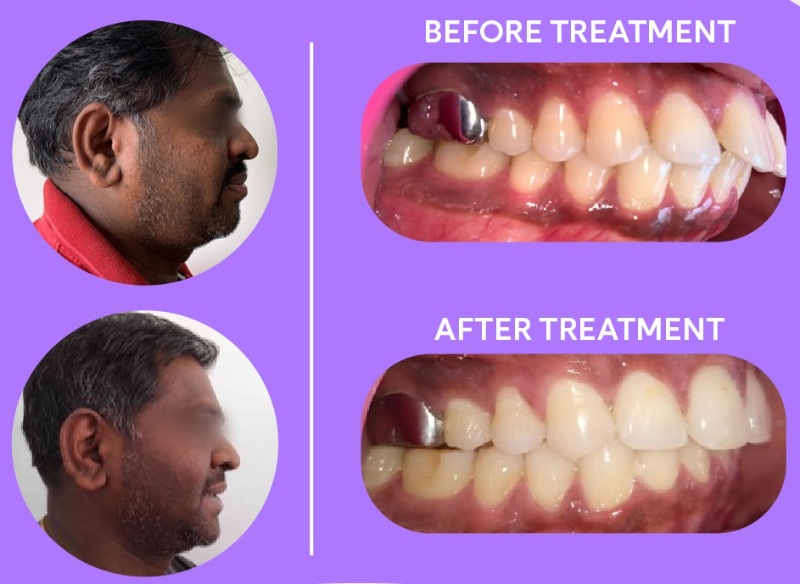
Patient 5:
Overbite with crossbite teeth, Treated with Dezy Aligners
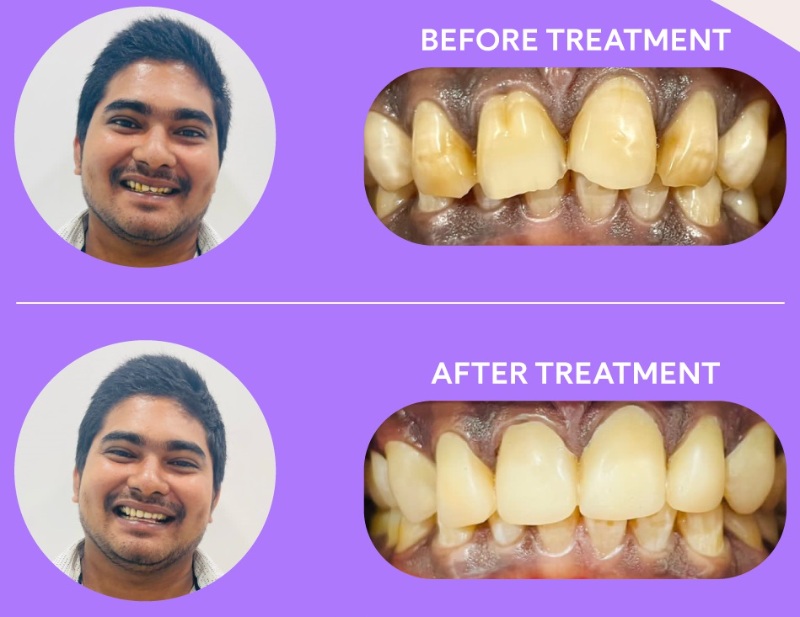
Noticing Mild Overbite Before and After Braces
Sometimes, if you get braces too early and don't get follow-up care, your overbite will come back. This is not a result of the teeth shifting; rather, the jaw has reached its full adult size.
Your teeth will wander if you don't wear your retainer religiously after getting rid of your braces. The jaw is actually more like a matrix than a dense bone, and ligaments hold your teeth in place.
The ligaments will attempt to contract again if you recently removed your braces since the matrix has not yet completely set around your teeth. As a result, your teeth may wander back to their original position.
How Long Do Braces Take for Overbite?
Overbites can be eliminated with traditional braces, which are also the most popular way to treat them.
Depending on the severity of the overbite, braces can fix an overbite in six to twelve months.
Can Overbite Come Back after Braces?
Yes, overbites can return after braces if proper retention measures aren't followed. Regular retainer use and orthodontist check-ups are crucial to prevent relapse and maintain the corrected bite.
Tips to Avoid Overbite Recurrence:
Use Retainers as Directed:
After braces treatment, orthodontists advise using retainers to keep teeth in their new positions and prevent them from shifting back.
Follow the Necessary Wear Time:
Retainers are typically worn for 6 to 12 months. For the first 3 to 6 months, they should be worn for 12 to 20 hours a day. After that, you can switch to wearing them at night for the next 6 months.
Some cases may require wearing retainers for 3 to 4 nights a week even after the first year. The duration depends on factors like age and the condition of your teeth.
Regular check-ups are essential to monitor and assess the stability of your teeth. Your diet, oral hygiene, and general cleanliness can also affect the wear period.
Keep Retainers Clean:
Clean retainers daily with a toothbrush and toothpaste after rinsing in cold water. This helps remove bacteria, stains, and food plaque.
Avoid washing retainers in hot water as it can distort the plastic.
How Much Do Overbite Braces Cost?
The most widely used form of treatment for overbites is braces. By applying pressure to the teeth with the use of brackets, wires, and elastic bands, braces straighten them out.
Braces typically cost between $4,000 and $10,000, and the length of the therapy might range from 6 months to 2 years. Once finished, you must use a permanent wire or a retainer to keep the teeth in place.
Children and teenagers may require extra treatment, such as orthodontic headgear if a problem with jaw alignment is a contributing factor in the development of an overbite. Jaw surgery may be required for adults.
Takeaway
Ask your orthodontist nearby for their opinion and advice on how to adjust your bite if you have an overbite after getting braces and want to have it fixed.
You'll be so happy you sought advice from a professional on how to correct an overbite before and after braces, took control of your smile, and underwent the procedure.
Correctly aligned teeth will make it simpler for you to chew and communicate, as well as increase your self-esteem.


